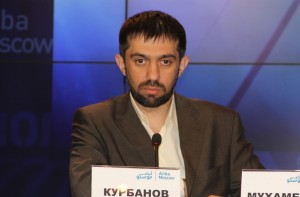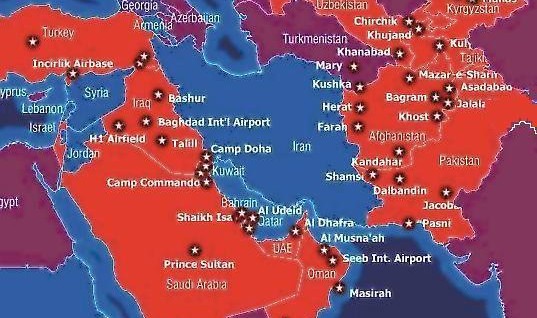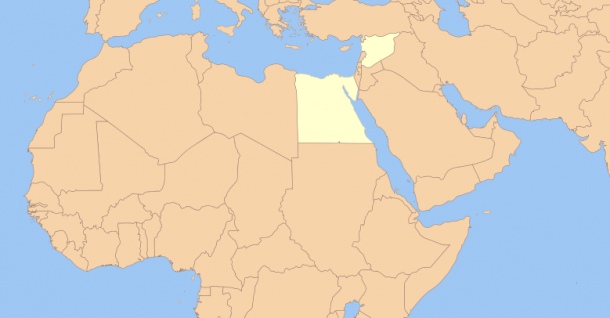When people speak about the Muslim world they often mean the existence of a certain unified area. Nevertheless it is obvious that the term “Muslim world” includes tens of states, hundreds of nations and ethnic groups which recognize their belonging to the Islamic tradition.
In this connection the question if it is possible for Muslim geopolitics, as a unified constructive strategy, to exist objectively in such a diverse world. The senior fellow of the Institute of Oriental Studies of the Russian Academy of Science Ruslan Kurbanov makes a point on this issue:
“The theme of the Muslim world unity is a big phantom. I would say that it is an instrument used by various parties. Among these parties are Muslims who use this term in the information space, also there are opponents standing against spinning up Muslim activities, and there are powers who want to play off Muslims against each other.
The fact is that when Muslims declare about the unity of Muslim world and about their achievements it is clear that the total unification of followers of Islam across the globe is mostly unattainable goal. It is a great chimera, a very dangerous chimera. Why so? The reason is that in this case we get into the clutches of ideological, phantom and even idealistic constructions.
It’s evident that Muslim societies are very diverse in languages, structures, mentalities, as well as dissimilar in development, income level, and educational level and standard of well-being, so I’m convinced that it is impossible to infuse all these masses into one huge unified community. The only possible thing is to spread, popularize and maintain a unified form of self-recognition as Muslims on the correct level.
Muslims in different parts of the world have different interests on the local level, however globally we should seek after the solidarity. We do need to achieve a proper level of unanimity taking into account the fact that without Divine Providence we are not able to gain the total unity. Only Allah with His Divine Will is able to bring Muslims to all-embracing unity. In all other circumstances this kind of unity is inapproachable target.
Nevertheless, as I said before, the certain sort of unity or certain degree of sincerity between Muslims are attainable. Muslims need to define proper range of issues that are required in the real solidarity, for instance on the level of Ummah. For this purpose a structure of responsible leaders nominated by people is to be formed. And here Muslim societies and structural units need to have proper level of consciousness, as well as sufficient legal culture and civic awareness to nominate the mature leaders. Then these leaders should come to more or less common positions in the international arena.
This is a very long process. Europe has succeeded it after centuries. But it should be noted that Europe has its specific way going through the development of secular culture and demolition of church, faith and religion. The European way squeezed out all these as they say, “obsolete institutions” from the public life. Taking this into consideration Muslims should have their own path to the unity restitution, and this way is not lying through destruction of religious institutions, but through discovering its fundamental potential instead.
I am convinced that today the Muslim world is on the way of its upsurge after the long-term fall of civilizational development, bankruptcy of many Muslim states and political associations. There is a revival ahead, sometime complicated and even tragic revival.”
***
It is considered that Geopolitics is a product of European political thinking. Is it so and do the Muslims need the knowledge in this sphere?
Ruslan Kurbanov:
“Indeed, many of sciences in their modern shapes like psychology, social science or political science — are formed within the framework of the Western civilization. These sciences have European names and considered as European heritage. However, there are two aspects that should be pointed. Firstly, there is no ban for Muslims to adopt the attainments and fundamentals of these sciences and spheres of human life; it is essential instead. Secondly, it’s a big mistake to think that these sciences were originated immediately in the Western civilization, since the theories of many of these scientific schools were developed by Muslim scientists many centuries before it had been done in the West.
Let’s take the Psychology which means “Science of the soul” – Ilm an-Nafs. This field of science was successfully and deeply investigated in the Muslim world. Social science- sociology, Political phenomenon, the Law of cyclical development of society – all there fields were described by Muslims many centuries earlier than it was done by western sociologists political scientists like Max Weber, Emile Durkheim, Auguste Comte, Engels, Karl Marx and others. As all these sciences were developed by Muslim scientists and only later Europeans improved them today Muslims are definitely obliged not only to learn but they must strive to restitute the leadership in further scientific investigations.
In this view the Geopolitics which studies interests, attainments and protection of interests of big societies worldwide is a very important field of science. It is obvious that Muslims should know the principles of this scientific field and its objects as well. Muslims should know what kinds of forecasts concerning big continents, states and civilizations the part of which is the Muslim world are made on the basis of geopolitical approaches. I am convinced that Ummah must bring forth a large amount of scientists with world reputation, so they could raise Muslim community and recover former leadership in all scientific fields.”
Muslim Politic
![Электронный журнал [Электронный журнал]](/magazine.static/magazine-front.jpg)



